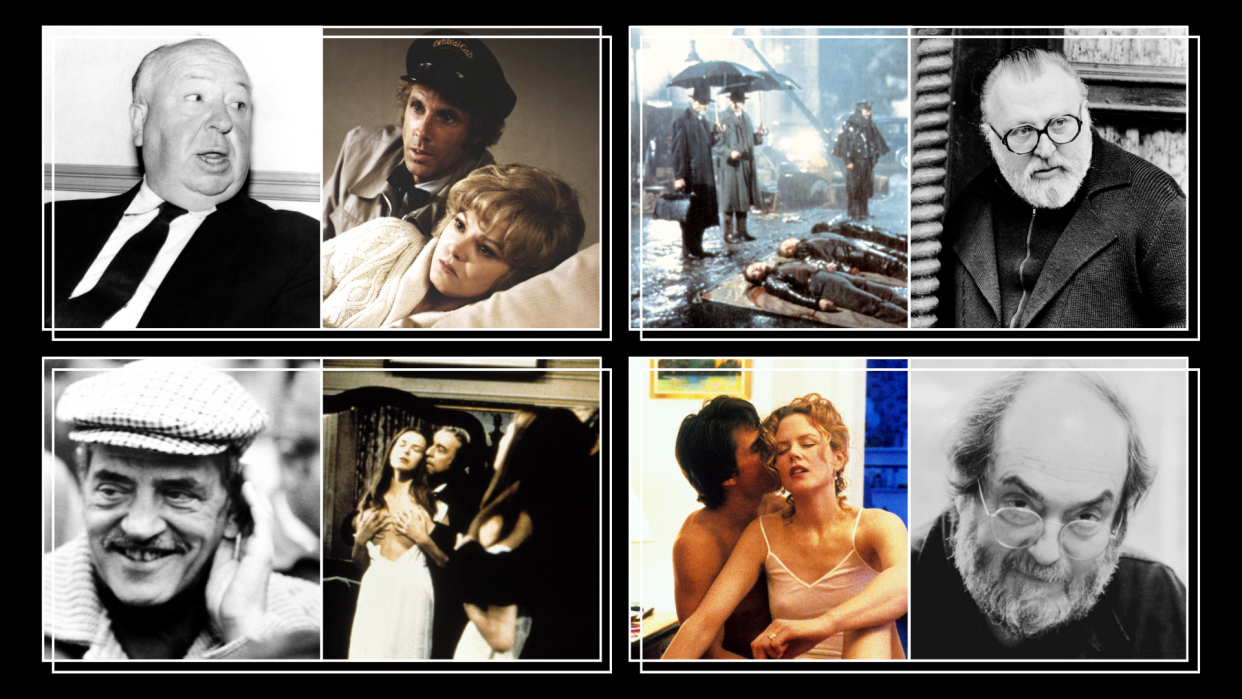17 Best Final Films by Great Directors

- Oops!Something went wrong.Please try again later.
To hear Quentin Tarantino tell it, filmmaking is a young person’s game; one reason he has said his upcoming feature “The Movie Critic” will be his last is that he doesn’t want to repeat the mistake of directors like Don Siegel and Arthur Penn, whose last movies (“Jinxed” and “Penn and Teller Get Killed,” respectively) represented an artistic nose dive from the work they were doing at their peak.
“Most directors’ last films are fucking lousy,” he told the Pure Cinema podcast on an episode in which he discussed the handful of final films he does like (such as Tony Scott’s “Unstoppable”), and there’s no doubt that many directors of the classical studio era went back to the well one too many times — only the most unapologetic auteurist would try to make the case that Howard Hawks’ “Rio Lobo” is as good as “Rio Bravo,” or that Sam Peckinpah’s “The Osterman Weekend” is worthy of the man who made “The Wild Bunch” and “Straw Dogs.”
More from IndieWire
'Twisters' Super Bowl Teaser: Lee Isaac Chung Chases Blockbuster Storms in Sequel to 1996 Original
'Wicked' Teaser: Ariana Grande and Cynthia Erivo Defy Gravity in 'Wizard of Oz' Prequel
'Deadpool & Wolverine' Teaser: Hugh Jackman Teams Up with Ryan Reynolds in 2024's Only Marvel Movie
Yet for every director who either ran out of creative steam or didn’t know how to navigate a changing cultural landscape, there’s another who did their best work late in life; just looking at 2023, one finds directors like Martin Scorsese (81), Ridley Scott (86), Wim Wenders (78), and Michael Mann (80) making films as lively and passionate as any in their oeuvre.
The best final films tend to sum up a director’s entire life and career while still pointing in bold new directions; Stanley Kubrick’s “Eyes Wide Shut” is probably the ultimate example of this, a movie that has multiple thematic and visual connections to earlier Kubrick works but contains a new (admittedly complicated) sense of optimism that makes the fact that it was Kubrick’s farewell to cinema particularly poignant. At their best, final films like Douglas Sirk’s “Imitation of Life” or Sergio Leone’s “Once Upon a Time in America” contain everything we love about their directors’ work done with more depth of feeling and skill in execution than ever before.
Great final films tend to be more confident and less demonstrative than directors’ earlier works, as filmmakers strip their techniques down to only the most essential tools needed to express their ideas. A surprising number of great final films are extremely limited in their spaces — John Huston’s “The Dead,” Ingmar Bergman’s “Saraband,” John Ford’s “7 Women,” and Otto Preminger’s “The Human Factor” are all among their directors’ most physically constricted movies, shot on just a few locations with a minimum of ornamentation. Yet they’re also some of these filmmakers’ most emotionally and thematically dense works, as the simplicity of form allows the directors to draw a direct line from their obsessions to the audience — movies like Carl Theodor Dreyer’s “Gertrud” or Sidney Lumet’s “Before the Devil Knows You’re Dead” are so void of excess and sentiment that they make most other dramas seem overblown or forced.
Movies like these are representative of literary critic Edward Said’s notion of “late style,” in which an artist is free to find their purest possible form of expression without the pressures — whether external or self-imposed — they might have felt in younger days, “the artist’s mature subjectivity, stripped of hubris and pomposity, unashamed of either its fallibility or of the modest assurance it has gained as a result of age and exile.”
While many great final films were made by directors who didn’t know they were making their last movies — Lynn Shelton is probably the most tragic example — in many cases, these directors had a sense that either health or their changing fortunes in the film industry meant it was likely they would never work again. Thus, there’s a moving sense of closure in many of these films and a last-ditch effort to get out everything the directors ever wanted to say — has there ever been a movie more stuffed with rich ideas than Stanley Kubrick’s “Eyes Wide Shut”?
Even in cases where the directors did not know the films they were working on would be their last, in retrospect, their swan songs take on the quality of epitaphs; perhaps the references to death in the generally lighthearted “Confidentially Yours” wouldn’t land the way that they do if François Truffaut had lived to make more films, but since he didn’t there’s a haunting sense of finality running underneath the escapist surface. What follows is a gallery of some of the greatest final films by great directors, which prove that the wisdom that comes with age sometimes yields the best that cinema has to offer.
Best of IndieWire
Where to Watch This Week's New Movies, Including 'Argylle' and 'How to Have Sex'
Christopher Nolan's Favorite Movies: 40 Films the Director Wants You to See
Sign up for Indiewire's Newsletter. For the latest news, follow us on Facebook, Twitter, and Instagram.

